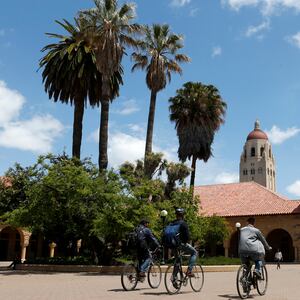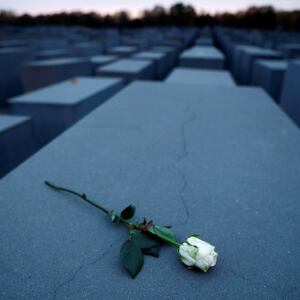A Christian student group on Wednesday argued in a federal court hearing in Michigan that public universities must “treat religious student groups equally with other campus groups,” in a case that has pitted the 142-year-old InterVarsity Christian Fellowship against Wayne State University.
InterVarsity Christian Fellowship is an organization with at least 1,000 individual chapters, and, according to its website, the purpose of the Wayne State InterVarsity chapter is to “establish and advance a witnessing community of students and faculty who follow Jesus as Savior and Lord: growing in love for God, God’s Word, God’s people of every ethnicity and culture, and God’s purposes in the world.”
But the 75-year-old Wayne State chapter of InterVarsity had its student organization status revoked by the university in 2017 “because the Christian student group asks its leaders to embrace its faith,” according to lawyers representing the organization.
Meanwhile, InterVarsity’s lawyer’s say, other students groups—including fraternities and the Quidditch Club—are able to select leaders based on the organization’s stated mission.
“All we ask is that our student leaders keep our Christian faith,” Wayne State student and InterVarsity member Deaunai Montgomery said outside the courthouse on Wednesday.
“To be clear, we want everyone to feel welcome to attend our group,” she added. “As a Christian group, we need our leaders to sincerely believe that what they teach us about Jesus is true.
“Wayne State insisted on treating us differently from everyone else. We asked Wayne State to end the double standard, they refused,” she said.
The issue first arose in 2017, when Wayne State began using a new online system to register student organizations. InterVarsity uploaded its group’s constitution, which asked that student leadership embrace its mission.
But the university in October informed the chapter that its recognition would be revoked over that stipulation, claiming that “the constitution’s requirement that leaders share the chapter’s faith was inconsistent with the school’s nondiscrimination code,” The Detroit Free Press reported.
As a result, according to the lawsuit filed over the disagreement, InterVarsity could no longer host free tables for interested students, apply for funding, appear on the website for student organizations, reserve free meeting rooms, or use any of the other benefits normally enjoyed by student groups on campus.
In order to meet on campus to hold a Bible study, the group had to pay $100 to rent a room in the student center, according to the lawsuit.
In response, InterVarsity filed a 53-page, 20-count federal complaint against the university in March 2018, claiming that the school is violating the constitution through anti-religious discrimination.
“Wayne State rightly allows fraternities to have only male leaders, female athletic clubs to have only female leaders, and African-American clubs to have only African-American leaders. But Wayne State cannot then say it is wrong for a Christian club to have only Christian leaders,” the lawsuit states. “Wayne State’s attempt to tell InterVarsity how to define its faith and select its leaders is anti-religious discrimination that violates clearly established federal and state law.”
Within days of the lawsuit, Wayne State had reinstated the student group.
But InterVarsity wasn’t finished—and has pushed ahead with the lawsuit anyway.
Filed in U.S District Court in the Eastern District of Michigan, the case seeks a permanent injunction prohibiting “enforcement of Wayne State’s non-discrimination policy against InterVarsity based on InterVarsity’s practice of selecting religious leaders who share its faith” and unspecified damages for the group’s “loss of rights.”
Daniel Blomberg, of the non-profit religious liberty law firm Becket Law, argued the case on Wednesday and then spoke outside the federal courthouse in Port Huron, noting that “the argument went very well today, and the judge asked a lot of good questions.”
“I think that shows he is taking it seriously,” Blomberg said. “We’re hoping that we will get a good ruling to protect InterVarsity’s rights and the rights of all religious groups.”
Blomberg’s firm said it was not clear when the judge would make a ruling but that one would likely come in several weeks.
In a statement to The Daily Beast on Wednesday, the university said: “After a review of the situation and communicating with the InterVarsity Christian Fellowship organization in March 2018, Wayne State immediately recertified the group as an official student organization. InterVarsity remains a recognized student group that is allowed to select its leaders. Wayne State has taken no action to withdraw recognition from InterVarsity and the group remains welcome on our campus.”
“Nevertheless, InterVarsity continues to pursue litigation against the university forcing it to spend taxpayer dollars to defend the lawsuit,” the statement reads. “This is a case of the national organization trying to set a precedent.”
Wayne State filed a motion to that effect, asking a judge to dismiss the suit in June 2018. The motion argued that InterVarsity has “failed to make factual allegations sufficient to support their claim of unequal treatment.”
“In a good faith effort to resolve this dispute, Wayne State granted InterVarsity-Wayne recognized student organization status and refunded the fees it paid when it was unrecognized,” the motion states. “Plaintiffs have nevertheless persisted in a case that names unnecessary defendants, that includes claims so frivolous that plaintiffs have abandoned them, and that—despite twenty counts and more than forty pages—fails to advance a single valid cause of action.”
“Wayne State did not deprive plaintiffs of any of their rights, period,” the school wrote.









